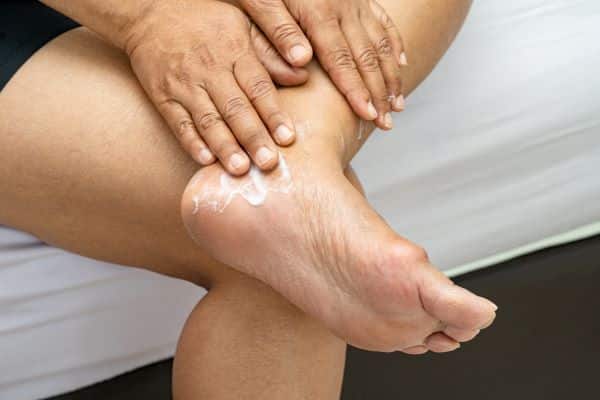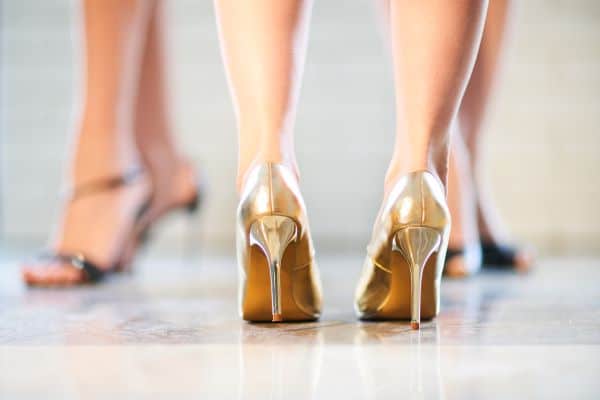Feet, often overlooked in daily health routines, carry the brunt of our daily activities and are pivotal for mobility and overall well-being. Neglecting foot care can lead to a cascade of problems, including pain, infections, and mobility issues. Common habits such as wearing inappropriate footwear, ignoring hygiene, or neglecting pain can have detrimental effects on foot health. This post delves into the bad habits that ruin our feet, emphasizing the need for awareness and proactive care to maintain foot health and, by extension, enhance quality of life.
Contents
Wearing Ill-Fitting Shoes

Wearing shoes that don’t fit properly is a common mistake with long-term consequences for foot health. Ill-fitting shoes can cause a range of problems, from immediate discomfort to serious conditions like bunions, corns, and blisters. Shoes that are too tight can constrict the foot, leading to circulatory problems and nerve damage, while those that are too loose can cause friction and uneven weight distribution, resulting in pain and structural foot issues. Therefore, it’s crucial to choose footwear that not only fits well but also provides adequate support and space for the toes to move.
Ignoring Foot Pain

Many people tend to dismiss foot pain as a minor inconvenience, not realizing that it can be a symptom of more serious health issues. Ignoring foot pain can lead to chronic conditions, exacerbate existing problems, and even affect one’s mobility and quality of life. Pain in the feet could indicate issues ranging from simple overuse to severe conditions like arthritis or diabetes-related complications. Prompt attention and treatment are essential to prevent minor discomfort from escalating into a debilitating condition, highlighting the importance of listening to and addressing foot pain early.
Skipping Foot Hygiene

Foot hygiene is often neglected in the daily grooming routine, leading to preventable issues like fungal infections, athlete’s foot, and unpleasant odors. Regular washing, drying, and inspecting of the feet can prevent these problems and promote overall foot health. Moist environments, such as those found in shoes and socks, can harbor fungi and bacteria, making foot hygiene especially crucial. Moreover, neglecting foot hygiene not only affects foot health but can also lead to infections that can spread to other parts of the body, emphasizing the need for consistent and thorough foot care practices.
Overlooking Moisturization

Dry skin on the feet is more than just a cosmetic issue; it can lead to painful cracks and fissures, especially in the heel area, which can be severe and lead to infections if left untreated. The skin on our feet is naturally drier than other parts of the body because it has no oil glands, relying on sweat glands to keep it moisturized. Regular application of a good quality foot cream or lotion can prevent dryness and cracking, keeping the skin supple and healthy. Additionally, moisturizing helps maintain the skin’s elasticity, reducing the risk of developing painful conditions and enhancing the feet’s ability to withstand daily wear and tear.
Neglecting Toenail Care

Proper toenail care is not just about aesthetics; it is crucial for preventing painful and often debilitating conditions like ingrown toenails and fungal infections. Cutting nails too short or in a curved fashion can encourage them to grow into the surrounding skin, leading to ingrown toenails, while leaving them too long can cause them to press against the shoe, leading to discomfort and deformities. Regular, careful trimming, keeping the nails straight across, and avoiding cutting too close to the skin can prevent these issues. Moreover, maintaining clean and dry toenails reduces the risk of fungal infections, which can be difficult to treat and may lead to more serious complications.
Frequently Wearing High Heels

High heels can undeniably add elegance to an outfit, but frequent use can wreak havoc on foot health, leading to a range of issues from bunions and hammertoes to chronic pain and irreversible damage to foot structure. The elevated heel height forces the feet into an unnatural position, placing excessive pressure on the forefoot and toes, leading to pain and deformities over time. Additionally, high heels often lack the necessary arch support, leading to overuse of certain foot muscles and the development of conditions like plantar fasciitis. Alternating high heels with more supportive footwear and limiting their wear can mitigate these risks, preserving foot health and functionality.
Excessive Standing or Walking

Standing or walking for prolonged periods is a common requirement in many occupations, leading to excessive strain on the feet, which can result in a host of problems, including plantar fasciitis, heel spurs, and stress fractures. The constant pressure and impact can overwhelm the foot’s natural shock absorbers, leading to pain and discomfort. It’s important to take regular breaks to rest and elevate the feet, reducing inflammation and strain. Investing in supportive footwear with adequate cushioning and arch support can also mitigate the impact of long hours on one’s feet, preserving foot health and preventing long-term damage.
Prioritizing Foot Health
Ensuring the well-being of our feet is crucial, given their integral role in our daily lives and overall health. The habits discussed, from wearing the right shoes to proper foot care, highlight the importance of attentive foot maintenance. Ignoring these practices can lead to long-term damage, pain, and decreased mobility. By adopting healthier foot habits, such as choosing appropriate footwear, maintaining hygiene, and addressing pain and wear issues promptly, we can significantly improve our foot health, enhancing our quality of life and keeping us active and pain-free.


